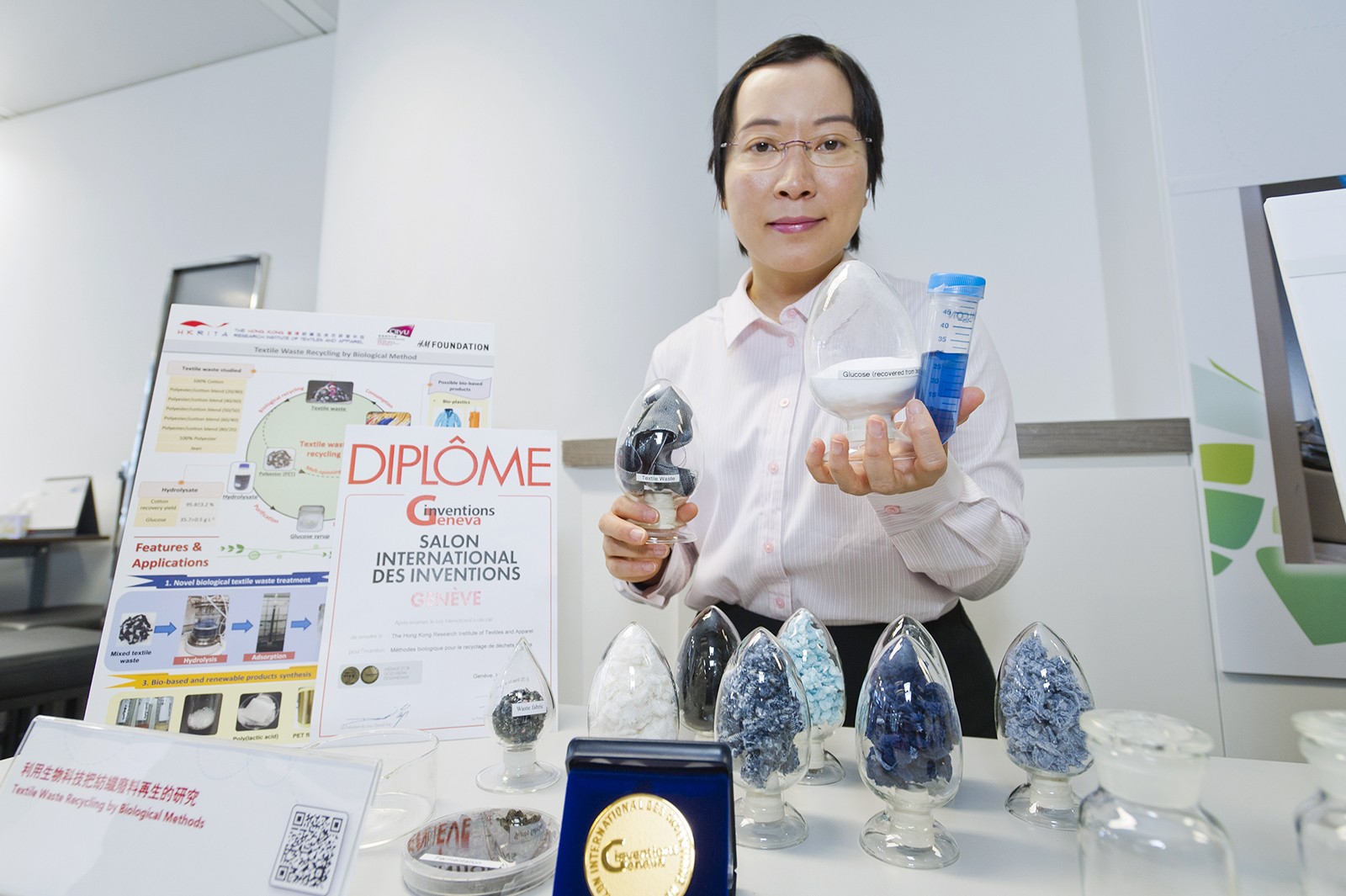Novel bioprocess for recycling textile waste wins gold in Geneva
Michael Gibb
Innovative green technology capable of recycling mixed textile waste developed by a researcher from the School of Energy and Environment (SEE) at City University of Hong Kong (CityU) and her research team has won a Gold Medal at the 46th International Exhibition of Inventions of Geneva.
Dr Carol Lin Sze-ki, Associate Professor in SEE, and the research team won the award for a novel bioprocess that makes use of textile waste for the sustainable production of value-added products such as glucose, synthetic fibre, bioplastics, bio-chemicals and bio-surfactants.
“There have been increasing concerns about the disposal of textile waste in recent years,” said Dr Lin, whose research targets the valorisation of textile waste through bioconversion into commercially valuable products.
In 2016, Hong Kong produced around 343 tonnes a day of textile waste, constituting 3.3% of the daily amount of local municipal solid waste that ended up in landfills. In 2014, over 14 million tonnes of textile waste was generated in the US alone, and only 2.38 million tonnes was recycled, while around 9.49 million tonnes was sent to landfills.
But Dr Lin’s project shows how waste textiles can be recovered and turned into usable products in a range of industries. The process consists of pre-treatment, enzymatic hydrolysis and melt-spinning in which enzymes efficiently degrade the natural fibre such as cotton in the textile waste into glucose, leaving the highly pure polyester residue for the subsequent re-spinning process.
The major difficulty in textile waste recycling has been that varied compositions are used, which limits regenerated products to low-value applications, e.g. second-hand clothing and basic fibre content. But Dr Lin’s new technology recovers glucose that can be converted into bio-based products such as plastics, surfactants, and chemicals by industrial biotechnologies, while the polyester can be reused in the textile industry.
“The proposed biorefinery strategies are capable of recycling most textiles such as cotton, polyester, jeans, and cotton-polyester blend textiles,” said Dr Lin. The bio-based products derived from textile waste also have the potential of replacing fossil fuel resources and creating a sustainable and circular economy while addressing the waste problem, she added.
The 46th International Exhibition of Inventions of Geneva, which was held from 11 to 15 April, 2018 was arranged under the patronage of the World Intellectual Property Organisation, the Swiss Government and the City of Geneva in Switzerland. It showcases innovations and inventions from around the globe, and this year over 800 exhibitors from 40 countries took part.
